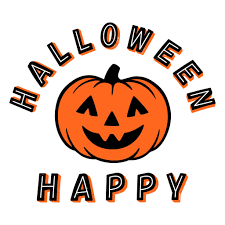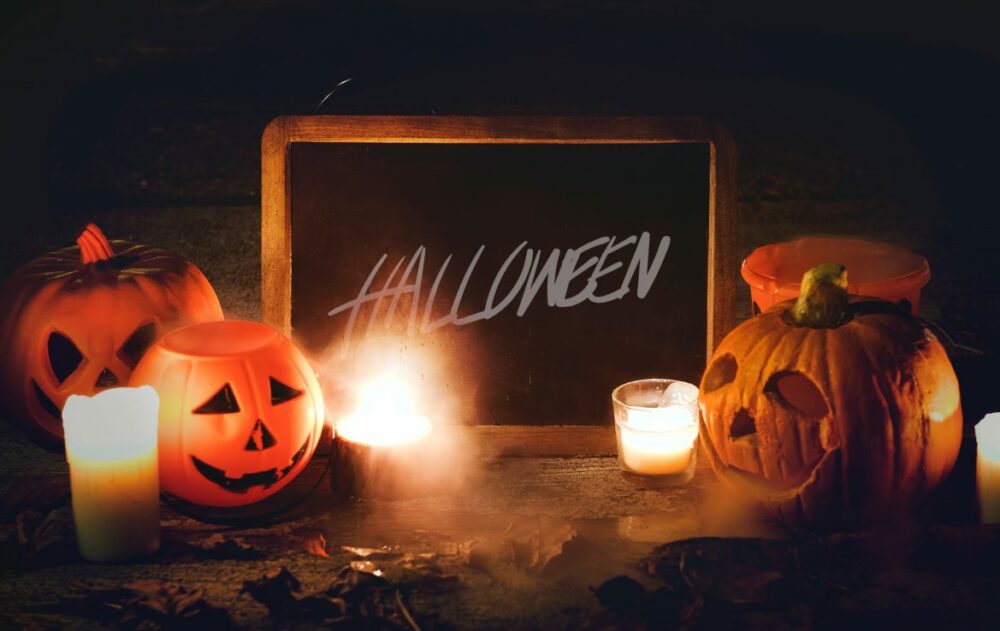Table of Contents
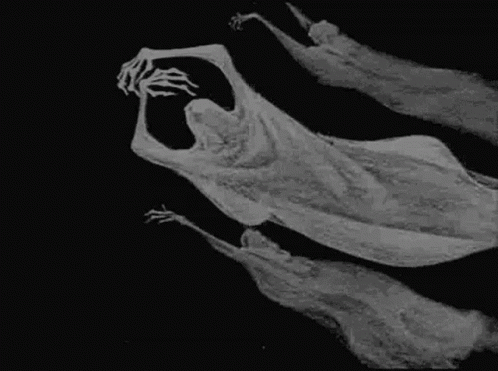
History of Halloween: Mysterious Beginnings
The history of Halloween begins with the Autumn Season. It is a time when the air gets crisp and cool and night sets in early. People stay inside more and spend time with their family.
Long ago, things were different. There were no electric lights, so most activities had to stop when the sun went down. There was no indoor heat. People bundled up and stayed by fires to keep warm. As the leaves fell from the trees and plants died, people were frightened. To some, winter seemed like a time of death.
More than two thousand years ago, a group of people called the Celts (Kelts) lived in Great Britain and Ireland. To explain the things they di not understand, the Celts believed in many gods. Some of the gods were good and some were evil. The sun god was good. The sun gives light and heat. Why did the sun seem to go away as winter came? Would the sun’s light come back? The Celts were not sure about tomorrow. To thank the sun god, they had a day to honor him. This day was the last day of their year – October 31st.
This celebration of the sun was mixed with fears about winter. Some stories tell of an evil god who came on this same day. This god, named Samhain (Sow-in), was the god of death. People believed he invited the ghosts of the dead to join him. People did not know what the ghosts might do. People thought the ghosts might enter their bodies or the bodies of animals. They thought the ghosts might even pick out who would die in the next year.
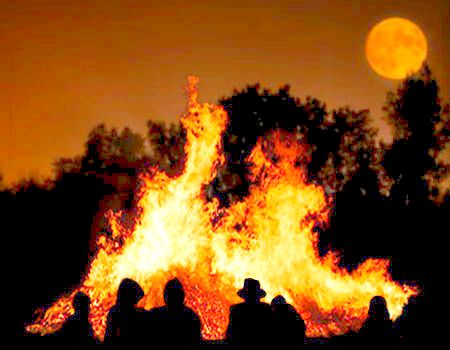
History of Halloween: Pagan Samhain
Because Halloween started so long ago (and they did not call it Halloween at the time), we cannot be sure what people did or believed then. We must count on the stories peopel told over time. Some stories say Samhain was a god who caused a lot of trouble on October 31.
Other stories say there never was a god named Samhain and the word “Samhain” simply means “end of summer.” Some stories say ghosts came to earth on their own. People were afraid of these ghosts. They build huge outdoor fires to scare the ghosts away. People wore costumes made of animal skins to frighten the ghosts. They left food outside their homes in hopes that the ghosts would enjoy the food instead of coming inside.
The Celts named this event Samhain after the god who frightened them. It was the beginning of winter and the beginning of Halloween. But there is more to learn about Halloween than that!
History of Halloween: Early Christian Influences
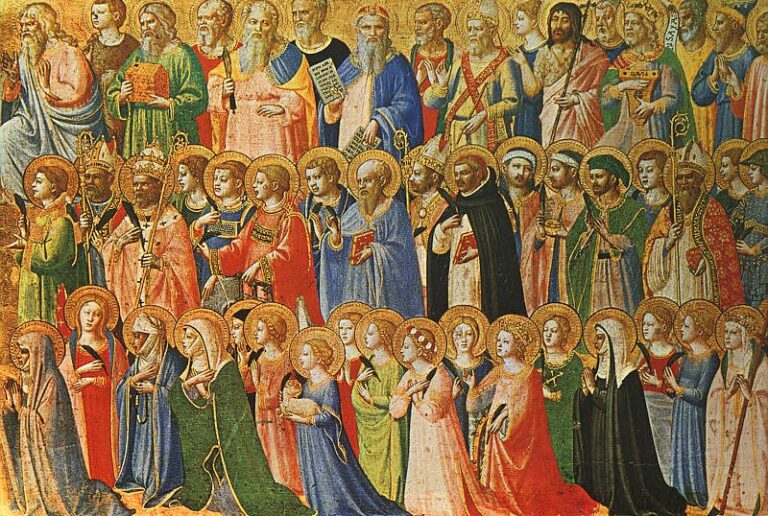
About six hundred years later, the Roman Catholic Church created All Saints’ Day to honor their saints. It was first celebrated in the spring. The church later changed the date to November 1, the day after Samhain. The church did not like Samhain because it was not Christian. The church wanted to replace Samhain with a religious holiday. They called it All Hallows, meaning “all saints.” The night before was called All Hallows’ Eve. This was eventually shortened to Halloween.
All Soul’s Day
Around 1000 CE, the church made another holiday called All Souls’ Day, celebrated on November 2. On this day the souls of the dead were remembered. In England on this day, the poor went door to door singing and begging for food at each home. Families would give out money or special cakes called soul cakes. In return, the poor promised to pray for the family members who had died. This activity was called going a-souling.
History of Halloween: Roman Influence
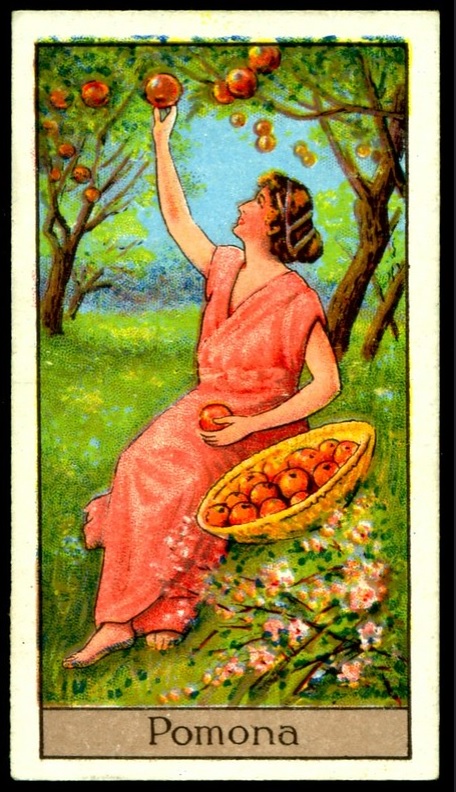
Pomona and the Harvest
In about the year 43 CE, a group of people called the Romans took over lands owned by the Celts. The Romans, like the Celts, believed in many gods. One was Pomona, a beautiful maiden. She was the goddess of fruit and orchards. Near November 1, the Romans celebrated Pomona and the harvest with a festival. People gave away gifts of fruits and nuts. They played games and ran races.
History of Halloween: Summary
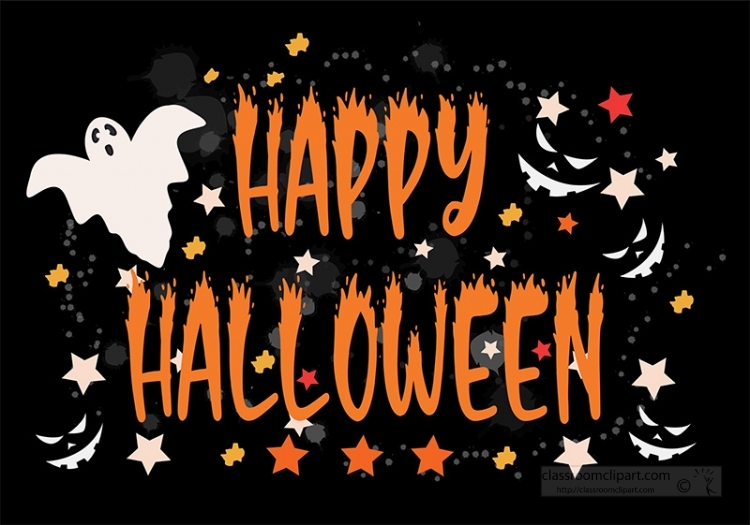
These holiday traditions have blended together to create our modern Halloween. From Samhain, we get costumes and the idea of a spooky night. From Pomona, we get food and games, such as bobbing for apples. From All Hallows Eve we get the name Halloween. From All Souls’ Day, we get going door to door for treats. Samhain and All Souls’ Day both give the concept of spirits of the dead, ghosts, and contact with spirits.
